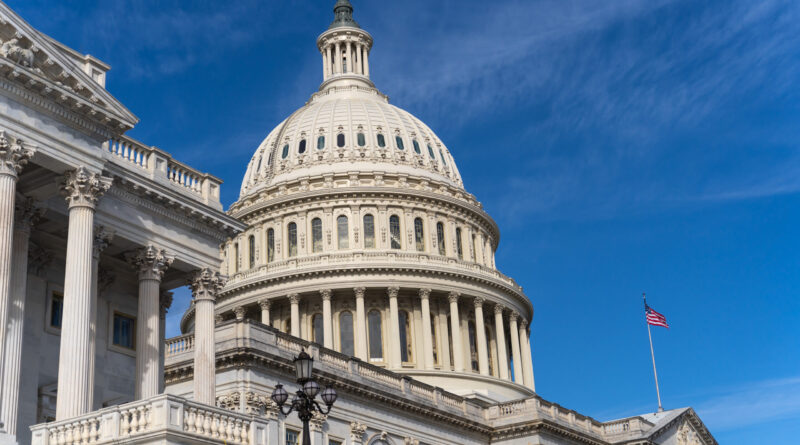Former Senate majority leader urges longer term stopgap measure to fund the government
If Congress can only agree on a stop-gap measure to fund the government beyond September 30, it should last for a few months so that lawmakers have breathing room to continue the appropriations process, former Senate Majority Leader Trent Lott said.

“My general disposition would be to make them longer rather than shorter. Because if you don’t, you are liable to be faced with the same decision again in November or December,” Lott, a Mississippi Republican, who served in Congress for more than 30 years, told Baltimore Post-Examiner earlier this week.
Lott said he has confidence that the key GOP lawmakers involved in crafting a proposal — House Committee on Appropriations chair Tom Cole (Okla.) and Senate Committee on Appropriations Committee Chair Susan Collins (Maine) — will ultimately come up with substantive legislation that has the support of both House Speaker Mike Johnson (La.) and Senate Majority Leader John Thune (S.D.).
A stopgap measure, known as a Continuing Resolution or CR, maintains government funding at existing levels. A CR is the most likely tool to be used to prevent a government shutdown when lawmakers are at an impasse and do not yet have an agreement to pass the 12 annual appropriations bills that fund the government.
Failure to advance either of the measures would guarantee that the government shuts down after midnight on October 1.
If that happens, emergency measures are in place to ensure temporary funding for critical operations such as payment for military members and the continuity of key social programs such as Social Security, Medicare and Medicaid.
But a prolonged shutdown would put all of that funding at risk of insolvency.
The longest government shutdown in U.S. history lasted for more than a month. It took place from December 22, 2018 to January 25, 2019.
“For everybody’s sake, Democrat and Republican, shutdowns are never good,” Lott said.
The White House has floated a CR that would keep the government open through the end of January.
House Republicans have said they are not locked into a specific date for the duration of a CR.
Senate Democrats are trying to use their political leverage to gain concessions from the Trump administration and the Republican-controlled Congress in exchange for the votes to keep the government open.
In the Senate, Republicans have a 6-seat advantage. But that is not enough to quell the majority party’s anxieties because 60 votes are often needed to advance critical legislation due to the upper chamber’s filibuster rules, which allow a single senator to block legislation until a cloture vote is held.
Cloture is the process for breaking a filibuster, and it can be somewhat time-consuming.
Senate Minority Leader Chuck Schumer (D-N.Y.) has suggested that keeping the government open may be contingent on an agreement to maintain the continuity of Affordable Care Act (ACA) subsidies, which are scheduled to expire at the beginning of January.
Those subsidies are used to help lower-income Americans pay for health insurance.
Thune has insisted on a “clean” CR, meaning that no other items are attached to the bill.
Who would get blamed for a shutdown?
Lott said he is unsure as to how a shutdown might affect Democrats’ chances in next year’s midterm elections.
“It’s hard to be sure about that.”
Todd Eberly, a professor of political science at St. Mary’s College of Maryland, noted that recent polling shows that Republicans would shoulder most of the blame for a shutdown since the party controls both chambers of Congress as well as the White House.
“It showed that nearly half of Americans would blame Trump and Congressional Republicans, as compared to 26% who would blame Democrats. Polling like that would likely motivate Republicans to find a way to keep the government open while also motivating Democrats to hold their ground on issues such as the Obamacare subsidies. The White House wants a continuing resolution that would keep the lights on until the end of January. That would give the Congressional GOP some breathing room to get the dozen spending bills ready.”
Eberly said CRs “are a poor way to fund the government” and warned that both parties could face blame for a shutdown. “They punt the ball on any kind of long-term planning and rather create a period of suspended animation.” A number of House appropriators, including the chairman of the House Appropriations defense subcommittee Ken Calvert (R-Calif.), have warned that long-term CRs create problems by locking in the prior year’s spending. Eberly warned that it prevents, for example, the Pentagon from undertaking new programs.
“So there’s division within the Congressional GOP over not only what to do, but how to do it. But because Republicans control both Houses of Congress and the White House, they’re more likely to suffer electoral consequences than are the Democrats. But that doesn’t mean that Democrats or their messaging would escape unscathed. It’s difficult to make the case that the government provides essential services that must be protected while simultaneously withholding the votes that would keep the government running.”
Richard Vatz, a professor emeritus of political persuasion who taught at Towson University for almost 50 years, said the controversy surrounding the recent assassination of conservative political activist Charlie Kirk might actually spill over into the debate over government funding.
The 31-year-old was killed by a sniper’s bullet while speaking at an event at the University of Utah in Salt Lake City on Wednesday.
The suspect in the shooting is in custody and has been identified as 22-year-old Utah resident Tyler Robinson, Utah Gov. Spencer Cox said at a news conference on Friday morning.
Cox was accompanied by FBI Director Kash Patel and other law enforcement personnel. Cox said law enforcement obtained information from the suspect’s family that might suggest the killing was politically motivated.
President Trump has announced his intention to posthumously award Kirk the Presidential Medal of Freedom.
Kirk frequently traveled to college campuses to engage in debate with progressive students and is credited with helping motivate many younger voters to go out and support Trump in last year’s presidential election.
Kirk’s assassination has renewed public debate over the issue of political violence and how to handle political disagreements.
“Everything is changed, however materially irrelevantly,” Vatz said. “I believe to the extent that if Democrats become bulwarks to the majoritarian Republicans’ attempts to keep the government running, the Democrats will pay the political price.
“The Democrats will be seen as the obstructionists with Republicans’ domination of Congress and the violent environment that has been created by the assassination, as well as the incredible tone-deaf, thoughtless reactions to it by many left-wing commentators. This is not fair, but the assassination was not fair. The only caveat is that Republican style may be less confrontational as well.”

Bryan is the managing editor of Baltimore Post-Examiner.
He is an award-winning political journalist who has extensive experience covering Congress and Maryland state government. His work includes coverage of the first election of President Donald Trump, the confirmation hearings of Supreme Court Justice Brett Kavanaugh and attorneys general William Barr and Jeff Sessions, the Maryland General Assembly, Gov. Larry Hogan, and the COVID-19 pandemic.
Bryan has broken stories involving athletic and sexual assault scandals with the Baltimore Post-Examiner.
His original UMBC investigation gained international attention, was featured in People Magazine and he was interviewed by ABC’s “Good Morning America” and local radio stations. Bryan broke subsequent stories documenting UMBC’s omission of a sexual assault on their daily crime log and a federal investigation related to the university’s handling of an alleged sexual assault.


Great article — it really drives home how a longer-term stopgap plan can reduce the risk of repeated funding battles and shutdowns. The point that we should “make [funding resolutions] longer rather than shorter” is especially clear and sensible.
If a government shuts down in the forest and no one is there to hear it, does it really shutdown?
Always great to hear insight from Dr. Vatz… Towson U. legend!
@Persecuted Nepman couldn’t agree more. I had Dr. Vatz as a prof in the early 1990s at Towson. He changed my life!